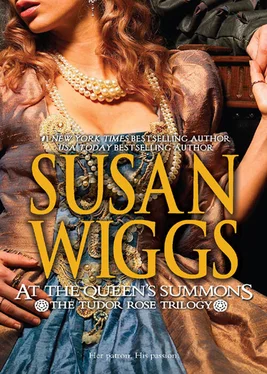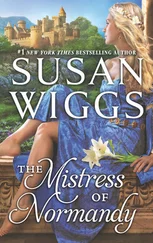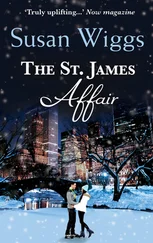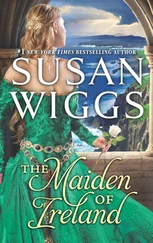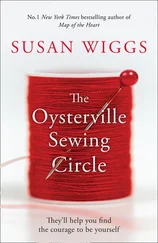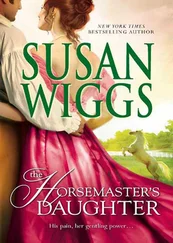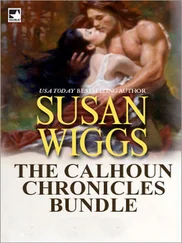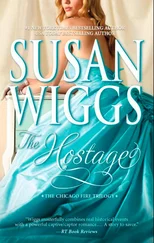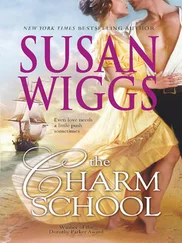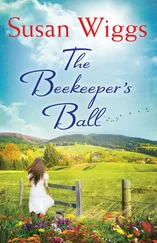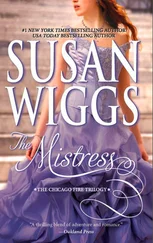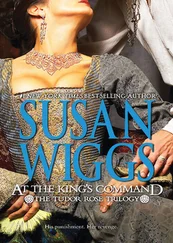Praise for the novels of
#1 New York Times bestselling author
SUSAN WIGGS
“Wiggs is one of our best observers of stories of the heart. Maybe that is because she knows how to capture emotion on virtually every page of every book.”
—Salem Statesman-Journal
“Susan Wiggs is a rare talent! Boisterous, passionate, exciting! The characters leap off the page and into your heart!”
—Literary Times
“[A] lovely, moving novel with an engaging heroine…Readers who like Nora Roberts and Susan Elizabeth Phillips will enjoy Wiggs’s latest. Highly recommended.”
—Library Journal on Just Breathe [starred review]
“Tender and heartbreaking…a beautiful novel.”
—Luanne Rice on Just Breathe
“Another excellent title [in] her already outstanding body of work.”
—Booklist on Table for Five [starred review]
“With the ease of a master, Wiggs introduces complicated, flesh-and-blood characters into her idyllic but identifiable small-town setting.”
—Publishers Weekly on The Winter Lodge [starred review, a PW Best Book of 2007]
At the Queen’s Summons
Susan Wiggs
Dedicated with love to my friend,
mentor and fellow writer,
Betty Traylor Gyenes.
Special thanks to:
Barbara Dawson Smith, Betty Traylor Gyenes and Joyce Bell, for providing all the generous hours of critique and support
The many members of the GEnie® Romance Exchange, an electronic bulletin board of scholars, fools, dreamers and wisewomen
The Bord Failte of County Kerry, Ireland
And the sublime Trish Jensen for her eagle-eyed proofreading skills.
Part One
Chapter One
Chapter Two
Chapter Three
Chapter Four
Chapter Five
Chapter Six
Chapter Seven
Chapter Eight
Chapter Nine
Chapter Ten
Part Two
Chapter Eleven
Chapter Twelve
Chapter Thirteen
Chapter Fourteen
Chapter Fifteen
Chapter Sixteen
Now is this golden crown like a deep well
That owes two buckets filling one another;
The emptier ever dancing in the air,
The other down, unseen and full of water;
That bucket down and full of tears am I,
Drinking my griefs, whilst you mount up on high.
—William Shakespeare
Richard II (IV, i, 184)
From the Annals of Innisfallen
In accordance with ancient and honorable tradition, I, Revelin of Innisfallen, take pen in hand to relate the noble and right valiant histories of the clan O Donoghue. This task has been done by my uncle and his uncle before him, since time no man can remember.
Canons we are, of the most holy Order of St. Augustine, and by the grace of God our home is the beechwooded lake isle called Innisfallen.
Those before me filled these pages with tales of fabled heroes, mighty battles, cattle raids and perilous adventures. Now the role of the O Donoghue Mór has fallen to Aidan, and my work is to chronicle his exploits.
But—may the high King of Heaven forgive my clumsy pen—I know not where to begin. For Aidan O Donoghue is like no man I have ever known, and never has a chieftain been faced with such a challenge.
The O Donoghue Mór, known to the English as Lord of Castleross, has been summoned to London by the she-king who claims the right to rule us. I wonder, with shameful, un-Christian relish, after clapping eyes on Aidan O Donoghue and his entourage, if Her Sassenach Majesty will come to regret the summons.
—Revelin of Innisfallen
“How many noblemen does it take to light a candle?” asked a laughing voice.
Aidan O Donoghue lifted a hand to halt his escort. The English voice intrigued him. In the crowded London street behind him, his personal guard of a hundred gallowglass instantly stopped their purposeful march.
“How many?” someone yelled.
“Three!” came the shout from the center of St. Paul’s churchyard.
Aidan nudged his horse forward into the area around the great church. A sea of booksellers, paupers, tricksters, merchants and rogues seethed around him. He could see the speaker now, just barely, a little lightning bolt of mad energy on the church steps.
“One to call a servant to pour the sack—” she reeled in mock drunkenness “—one to beat the servant senseless, one to botch the job and one to blame it on the French.”
Her listeners hooted in derision. Then a man yelled, “That’s four, wench!”
Aidan flexed his legs to stand in the stirrups. Stirrups.Until a fortnight ago, he had never even used such a device, or a curbed bit, either. Perhaps, after all, there was some use in this visit to England. He could do without all the fancy draping Lord Lumley had insisted upon, though. Horses were horses in Ireland, not poppet dolls dressed in satin and plumes.
Elevated in the stirrups, he caught another glimpse of the girl: battered hat crammed down on matted hair, dirty, laughing face, ragged clothes.
“Well,” she said to the heckler, “I never said I could count, unless it be the coppers you toss me.”
A sly-looking man in tight hose joined her on the steps. “I saves me coppers for them what entertains me.” Boldly he snaked an arm around the girl and drew her snugly against him.
She slapped her hands against her cheeks in mock surprise. “Sir! Your codpiece flatters my vanity!”
The clink of coins punctuated a spate of laughter. A fat man near the girl held three flaming torches aloft. “Sixpence says you can’t juggle them.”
“Ninepence says I can, sure as Queen Elizabeth’s white arse sits upon the throne,” hollered the girl, deftly catching the torches and tossing them into motion.
Aidan guided his horse closer still. The huge Florentine mare he’d christened Grania earned a few dirty looks and muttered curses from people she nudged out of the way, but none challenged Aidan. Although the Londoners could not know he was the O Donoghue Mór of Ross Castle, they seemed to sense that he and his horse were not a pair to be trifled with. Perhaps it was the prodigious size of the horse; perhaps it was the dangerous, wintry blue of the rider’s eyes; but most likely it was the naked blade of the shortsword strapped to his thigh.
He left his massive escort milling outside the churchyard and passing the time by intimidating the Londoners. When he drew close to the street urchin, she was juggling the torches. The flaming brands formed a whirling frame for her grinning, sooty face.
She was an odd colleen, looking as if she had been stitched together from leftovers: wide eyes and wider mouth, button nose, and spiky hair better suited to a boy. She wore a chemise without a bodice, drooping canion trews and boots so old they might have been relics of the last century.
Yet her Maker had, by some foible, gifted her with the most dainty and deft pair of hands Aidan had ever seen. Round and round went the torches, and when she called for another, it joined the spinning circle with ease. Hand to hand she passed them, faster and faster. The big-bellied man then tossed her a shiny red apple.
She laughed and said, “Eh, Dove, you don’t fear I’ll tempt a man to sin?”
Her companion guffawed. “I like me wenches made of more than gristle and bad jests, Pippa girl.”
She took no offense, and while Aidan silently mouthed the strange name, someone tossed a dead fish into the spinning mix.
Aidan cringed, but the girl called Pippa took the new challenge in stride. “Seems I’ve caught one of your relatives, Mort,” she said to the man who had procured the fish.
Читать дальше
